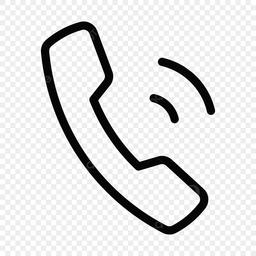How much does baling wire cost?
Baling wire is a minor but not insignificant expense in recycling and waste management operations. Recycling operations pay $2 to $4 to bale one ton of recyclables. That means an operation that bales 100 tons per day can expect to pay roughly $300 per day for baling wire. The following criteria determine how much facilities spend on baling wire:
- Bale size
- Facility throughput
- Strength requirements
- Storage requirements (rust tolerance needed)
We’ve outlined some basic tips and strategies to keep operating costs low and save money on baling wire.
Bale size and facility throughput
Cost calculations begin with determining how much wire you need. This involves calculating the wire required for each bale and your recycling facility’s throughput.
Bale size determines the length of wire you’ll use to bale a single bale. To calculate the required length, follow these steps:
- Measure your bale's circumference.
- Add 10–15 percent to the circumference for twisting and tying.
- Multiply the resulting length by the number of wires per bale (typically 2–4).
For instance, if your bale has a 60-inch circumference and needs 3 wires, the calculation would be:
- 60 inches + 15% = 69 inches
- 69 inches × 3 wires = 207 inches (or 17.25 feet) of baling wire per bale
After you’ve calculated how much wire one bale requires, multiply that by the high end of your estimated throughput for the duration you’re purchasing wire for.
Load strength requirements
Load strength requirements determine which wire gauge is appropriate for baling each type of material. Wire gauge and carbon content determine a wire’s tensile strength and load strength. A lower gauge indicates a thicker diameter and stronger wire. High-tensile wire is made with higher carbon grades, which strengthen the wire.
The combined load strength of the baling wires should exceed the weight of the bale. Expansive materials, such as tires or cardboard, require stronger wire to account for increased outward pressure.
Here is a reference chart for common recyclables. Load strength ratings correspond to our regular (non-high-tensile) wire.
|
Material |
Bale weight (lbs) |
Recommended wire gauge |
Load strength per wire (lbs) |
|
Paper (compacted) |
1,200–1,800 |
10–13 |
509–1,755 |
|
Cardboard (compacted) |
1,000–1,500 |
10–14 |
402–1,755 |
|
Plastic (mixed) |
800–1,200 |
10–13 |
509–1,755 |
|
400–600 |
12 |
565–1,180 |
With a three-wire tying system, a 1,200-lb paper bale could be baled with a 12 gauge black annealed wire since its load strength is 565 (x 3 = 1,695) lbs.
Consult your baler manufacturer, and talk to us if you’d like help choosing the right wire for your application.
Storage requirements
Storage conditions determine which finish is appropriate for your applications.
- For bales that only require short-term storage, or bales that will be stored in client-facing, climate-controlled environments, uncoated wire (such as our bright double loop bale ties) is cost-effective.
- For bales that require some degree of corrosion resistance, black annealed wire’s wax coating offers minor protection against rust.
- For bales that will be stored outdoors for long periods, or bales that will be handled roughly, galvanized wire is preferable. Galvanized wire resists rust and abrasion due to its protective zinc coating. We offer Class 1 and Class 3 galvanization on our galvanized products.
You can reduce your baling wire expenses by choosing wire that only has the level of rust protection you need.
Other baling wire cost considerations
Some other baling wire cost considerations include the following:
- Buy in bulk. We offer competitive prices for bulk orders. If your baler is compatible, it is also cheaper to buy stem wire in bulk than it is to buy an equivalent amount of box wire.
- Shipping costs. Box wire and stem wire are sold by weight. Choose the highest gauge you can safely operate with to avoid paying the increased shipping costs associated with equivalent lengths of thicker wire.
- Recycle waste baler wire. Not only does this allow recyclers to double down on their commitment to the circular economy, but selling scrap baling wire can offset some operating costs.
Baling wire products we offer
Baling Wire Direct sells the following high-quality baling wire products.
Baling Wire FAQ
Didn't find your answer?
Our team is just an email away and ready to answer your questions


